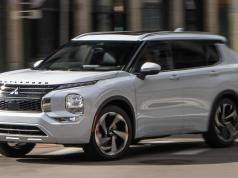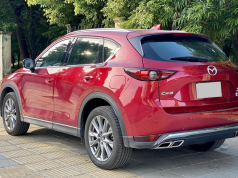Buying a used car can be a smart financial decision, especially in a bustling country like Vietnam where a reliable vehicle can significantly enhance your day-to-day life. However, even the most diligent checks can sometimes miss hidden issues. Imagine you’ve just bought a Lux A from a showroom, with promises that it’s in pristine condition.
Upon initial inspection, you notice some paint marks on the door bolts but decide it’s not a deal-breaker. However, once you get the car home, you start hearing creaking noises from the front, notice a loose exhaust pipe on the left, and find the fuel cap latch broken. What should you do next? This guide, based on my extensive experience living in Southeast Asia as Worry the Frog, will help you navigate this tricky situation by sharing valuable advice and knowledge.
Thorough Inspection Before Purchase
Exterior and Test Drive:
Before making any purchase, especially with used cars, it’s vital to thoroughly check the exterior and take the car for a test drive. Here are some detailed steps to ensure you don’t miss anything critical:
- Check the Exterior:
- Paint and Bodywork: Look for inconsistencies in the paint job, such as color mismatches or rough spots that might indicate previous repairs.
- Panel Gaps: Ensure that all body panels align correctly. Uneven gaps can be a sign of poor repairs from previous accidents.
- Rust and Corrosion: Inspect the car for rust, especially in hidden areas like the undercarriage, wheel wells, and around the doors.
- Windows and Seals: Check the condition of windows and door seals for cracks or signs of water damage.
- Test Drive:
- Starting the Engine: Listen for any unusual noises when the engine starts, such as knocking or ticking sounds.
- Driving Performance: Pay close attention to how the car handles, accelerates, and brakes. Note any vibrations, pulling to one side, or unusual noises.
- Electronics and Controls: Test all electronic features, including lights, air conditioning, windows, and infotainment systems. Ensure everything is working properly.
Having a friend with mechanical knowledge accompany you can be invaluable. They might notice things you overlook.
Maintenance History:
A comprehensive maintenance history is crucial. Here’s why and how to ensure you get this information:
- Service Records:
- Scheduled Maintenance: Verify that the car has received regular servicing as per the manufacturer’s recommendations. This includes oil changes, brake inspections, and tire rotations.
- Major Repairs: Look for records of any significant repairs. Frequent major repairs can indicate underlying issues that may persist.
- Accident History:
- Accident Reports: Request a detailed report of any accidents the car has been involved in. Check the severity of the accidents and what repairs were made.
- Structural Damage: Ensure there are no records of structural damage. This can severely affect the car’s safety and performance.
In Vietnam, it’s not uncommon for sellers to withhold certain details, so insist on seeing these records. If the seller is reluctant, consider it a red flag.
Discovering Issues After Purchase
Initial Reaction:
If you discover issues after purchasing the car, your first step should be to determine whether these are major or minor problems. Here’s how to handle it:
- Assess the Issues:
- Major Problems: Issues like engine noises, suspension problems, or transmission faults can be serious. These need immediate attention.
- Minor Problems: Items like a loose exhaust pipe or broken fuel cap latch, while inconvenient, are usually less urgent.
- Contact the Seller:
- Immediate Communication: Inform the seller about the problems as soon as possible. Provide detailed descriptions and photos.
- Document Everything: Keep a record of all communications, including emails and text messages. This documentation will be crucial if you need to escalate the issue.
From my experience, promptly addressing issues with the seller often leads to a quicker and more amicable resolution.
Getting a Professional Check:
Having the car inspected by another professional provides an unbiased opinion. Here’s what to consider:
- Choose a Reliable Mechanic:
- Recommendations: Ask for recommendations from friends, colleagues, or online expat communities.
- Certified Technicians: Look for mechanics who are certified and have experience with the car brand you’ve purchased.
- Detailed Inspection:
- Mechanical Check: Ensure the mechanic conducts a thorough check of the engine, transmission, suspension, and braking systems.
- Diagnostic Tools: A good mechanic should use diagnostic tools to identify any electronic or engine management issues.
- Written Report: Request a detailed written report of the findings. This report will help in negotiations with the seller.
Although this inspection might incur some costs, it’s a worthwhile investment for peace of mind.
Negotiation and Resolution
Negotiating with the Seller:
If the issues are significant, negotiation is key. Here’s how to approach it:
- Present Your Case:
- Evidence: Use the documentation and the professional inspection report to clearly present the issues.
- Be Polite but Firm: Maintain a professional tone. Clearly state what you expect—whether it’s a repair, a replacement, or a price reduction.
- Possible Outcomes:
- Repair Agreement: The seller might agree to cover the repair costs.
- Price Reduction: You could negotiate a partial refund to cover the cost of repairs.
- Return and Refund: In some cases, especially with major undisclosed issues, you might request to return the car for a full refund.
In my experience, most sellers prefer to resolve the issue amicably rather than face potential legal complications or bad reviews.
Fixing Minor Issues:
For minor problems, consider these options:
- DIY Fixes:
- Simple Repairs: Some issues, like replacing a broken fuel cap latch or tightening an exhaust pipe, can be done at home with basic tools.
- Online Guides: Use online tutorials and forums for guidance on simple repairs.
- Professional Help:
- Local Mechanics: For minor but technical repairs, local mechanics can be a cost-effective solution.
- Part Replacement: Sometimes, ordering parts online and having a mechanic install them can save money compared to dealership repairs.
During my time in Southeast Asia, I’ve often handled minor fixes myself to save costs and time. However, always weigh the risks before attempting any repairs.
Community Insights and Advice
Learning from Others:
Many expats and locals have faced similar issues when buying used cars. Engaging with the community provides valuable insights:
- Online Forums:
- Expat Communities: Join local expat forums and social media groups. Members often share their experiences and recommendations.
- Automotive Forums: Websites dedicated to car enthusiasts can provide model-specific advice and common issues.
- Local Car Clubs:
- Meetups: Attend meetups or events organized by local car clubs. These gatherings are great for networking and getting firsthand advice.
I’ve found that learning from others’ experiences often helps in making better decisions and avoiding common pitfalls.
Expert Advice:
If you’re not experienced in car maintenance or negotiations, seek advice from experts:
- Automotive Consultants:
- Professional Advice: Hire a consultant for a comprehensive evaluation of your situation.
- Negotiation Help: They can also assist in negotiating with the seller.
- Trusted Mechanics:
- Regular Check-ups: Establish a relationship with a reliable mechanic for regular maintenance and checks.
- Emergency Repairs: Having a trusted mechanic is invaluable for emergency repairs.
Considering New vs. Used:
If you’re not confident in assessing a used car’s condition, consider the benefits of buying new:
- Warranty and Peace of Mind:
- Manufacturer Warranty: New cars come with a manufacturer’s warranty, covering major repairs and issues for several years.
- Reliability: New cars are less likely to have immediate issues, providing peace of mind.
- Financial Considerations:
- Higher Initial Cost: New cars are more expensive upfront but might save money in the long run with fewer repairs.
- Resale Value: New cars depreciate faster initially but stabilize over time, providing better long-term value.
During my years in Vietnam, I’ve seen many expats opt for new cars for the peace of mind and reliability they offer, despite the higher initial cost.
Conclusion
Discovering issues with a newly purchased used car can be frustrating, but there are steps you can take to resolve the situation. Thoroughly inspect any car before buying, check its maintenance history, and test drive it. If problems arise after purchase, document everything, get a professional inspection, and negotiate with the seller for repairs or compensation. Learning from others and seeking expert advice can also help you navigate this process more smoothly.
In summary, the key steps are:
- Thorough Inspection: Always inspect used cars thoroughly before purchase, including checking the exterior, taking a test drive, and reviewing the maintenance history.
- Professional Help: Get a second opinion from a professional if you discover issues after buying the car.
- Negotiation: Be prepared to negotiate with the seller for repairs or compensation if significant problems are found.
- Community and Expert Advice: Engage with the community for insights and seek expert advice when needed.
- Consider New Cars: If you’re not confident in assessing used cars, consider the benefits of buying new.
By following these steps, you can make informed decisions and avoid potential pitfalls when buying a used car in Vietnam. Safe travels and happy driving!
FAQs
1. What should I do if I find issues with my newly purchased used car?
- Document all issues thoroughly with photos and detailed descriptions.
- Contact the seller immediately to inform them of the problems.
- Get a second opinion from a professional mechanic to assess the issues.
2. How can I avoid buying a used car with hidden problems?
- Conduct a thorough inspection of the car’s exterior, interior, and mechanical components.
- Test drive the car to identify any unusual noises or handling issues.
- Review the car’s maintenance and repair history before making a purchase.
3. Is it better to buy a new car instead of a used one?
- A new car offers the peace of mind of a manufacturer’s warranty and is less likely to have immediate issues.
- However, a used car can provide better value for money, especially if you conduct thorough checks and get a good deal.
4. How can I negotiate with the seller if I find problems with the car?
- Present documented evidence of the issues along with a professional inspection report.
- Be firm but polite in requesting repairs, a price reduction, or a refund.
- If necessary, seek legal advice or assistance from consumer protection agencies.
5. What should I look for in a professional mechanic for inspections?
- Choose a mechanic with certification and experience with the car brand you’re interested in.
- Ask for recommendations from friends, colleagues, or online communities.
- Ensure the mechanic uses diagnostic tools and provides a detailed written report of their findings.












